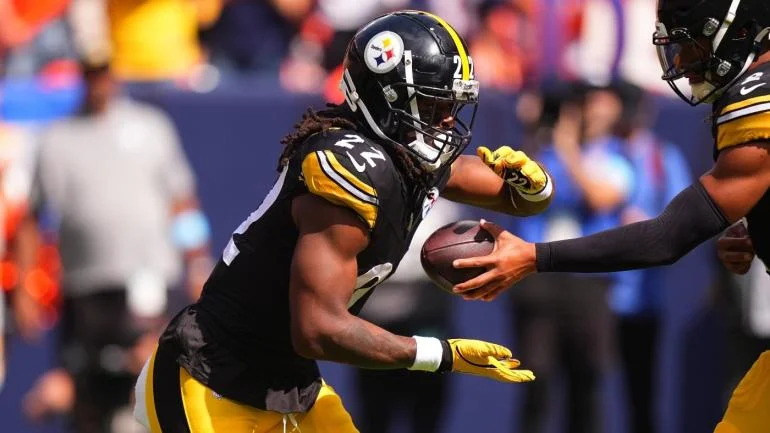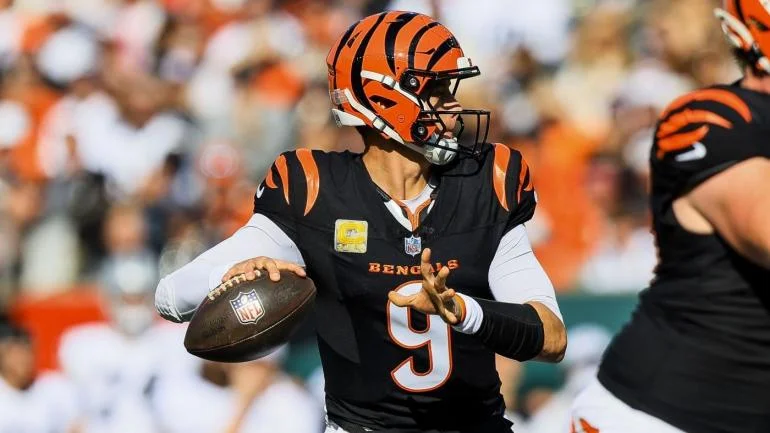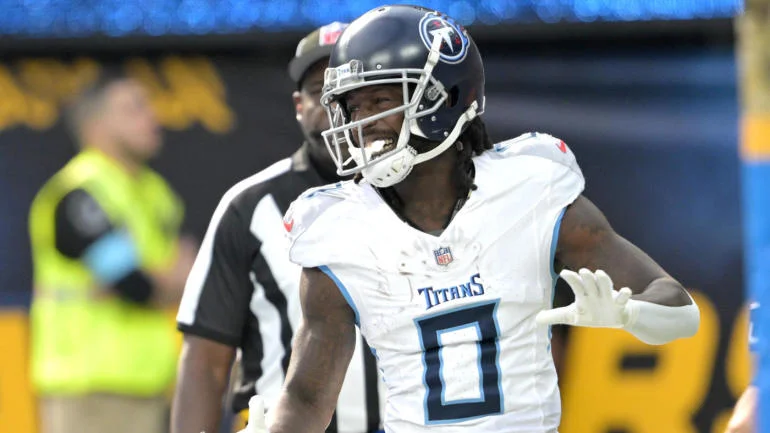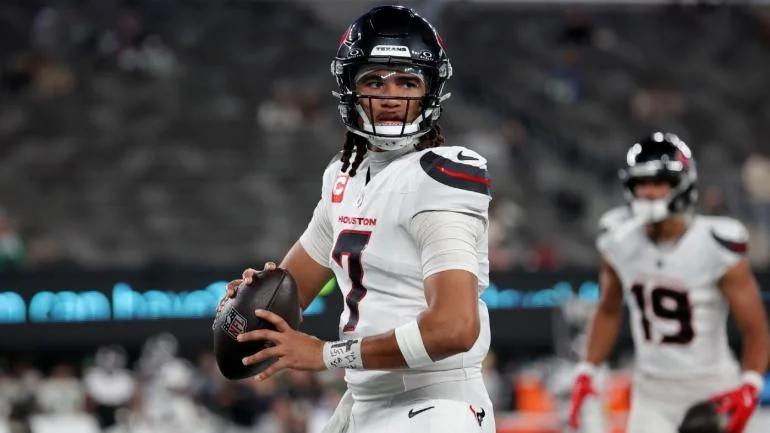FILE- In this Sept. 6, 2014, file photo, Miami quarterback Brad Kaaya watches from the sideline during the second half of an NCAA football game against Florida A&M in Miami Gardens, Fla. Kaaya was walking through the Miami campus earlier this week, totally unbothered and unnoticed as he strolled around Lake Osceola. Call it a rare moment of solitude for the Hurricanes’ quarterback, who has been thrust into the fire as a freshman starter and is now getting ready for No. 24 Nebraska on Saturday night. (AP Photo/Lynne Sladky, File)
There are only a few teams that could potentially draft a QB and immediately place them into the starting lineup. In my mind, those teams would be Cleveland, San Francisco, and Houston (barring a Tony Romo trade.) All three of those franchises should strongly consider a signal caller early on in the draft.
A few days ago, I also considered which teams should draft “heir apparent” quarterbacks for their veterans. Those ended up being Arizona, and the L.A. Chargers.
There is also a boatload of teams that could draft a QB to upgrade (or develop) their backup situation. I consider those teams to be: Carolina, Indianapolis, Washington, Tennessee, Tampa Bay, Detroit, Seattle, and Atlanta.
With all that in mind, here’s my humble opinion on how the draft should play out.
ROUND ONE
San Francisco selects: Deshaun Watson, Clemson
We get it, Deshaun Watson has flaws. He comes from a QB-friendly system and still couldn’t avoid interceptions.
But here’s the bottom line: Watson is still the best quarterback of this class, warts and all. You can make the argument that the Niners should wait until 2018 to find their franchise QB, but there’s no guarantee that the ’18 class, which looks promising from a distance now, will still look as beautiful under the microscope. If you wait and wait to get married until the perfect QB prospect comes along, you’re going to wind up single for a long ass time.
Rather than focus on the flaws, consider what Watson has shown. While Mitchell Trubisky was struggling to win a starting job at UNC, the Clemson coaches couldn’t keep Watson off the field, turning to him as a true freshman and never looking back. While DeShone Kizer was struggling to win games at Notre Dame, Watson was leading the Tigers to the national championship game — twice — and beating one of the best college defenses of the last decade.
He’s productive, he’s experienced, he’s a leader. He has flaws, but I would trust a bright offensive mind like Kyle Shanahan to engineer his offense around Watson’s talents and draw out the best in him.
Houston selects: QB Mitchell Trubisky, North Carolina
Of course, this pick presumes that teams like Cleveland (#12) and Arizona (#13) should pass on Trubisky, allowing him to fall all the way to #25 here.
First, let’s start with the positives. Trubisky showed good accuracy and has underrated athleticism. There’s a reason he was listed as a “dual threat” QB prospect coming out of high school.
The well-documented red flag with Trubisky is a matter of experience, coming off only one season as a starter at UNC. He couldn’t beat out Marquise Williams for a few years, but let’s not consider that a death sentence. Both Russell Wilson and Joe Flacco transferred colleges under QB competition pressure (among other reasons) but went on to win Super Bowls.
The lack of experience does make Trubisky a project, however, which is why he’d be a better fit going to a program with a long-term plan in place. Houston, if it does sign Tony Romo, makes a lot of sense in that regard. Trubisky can develop under Bill O’Brien and take over whenever Romo retires (hopefully by choice.)
Of course, this pick presupposes one thing: that Tom Savage is NOT the answer. There are plenty of Texans fans out there that believe Savage (another college transfer, by the by) can be a solid starter. Personally, I haven’t seen enough of that to believe he’s my “guy.” Trubisky, on the other hand, could be.
ROUND TWO
Cleveland selects: Patrick Mahomes II, Texas Tech
Plenty of redditors believe that Mahomes is the #1 QB prospect on the board, ahead of Watson and Trubisky. There’s certainly an argument for that, given his statistical success and his arm strength.
I like Mahomes’ potential as well, but I believe he’s more of a “risk” than that. In fact, he’d scare me as a first-round pick. However, the Browns could utilize their bounty of draft picks and take the gamble on Mahomes here, with the first pick of the second round, and still, have plenty of picks in reserve.
I also like Cody Kessler‘s potential as a pro passer, but Mahomes would represent interesting competition for him, as near polar opposites. Hopefully, the two could bring out the best in each other, pushing each other until one emerges as the QB of the future. And if not, there’s always 2018.
Arizona selects: DeShone Kizer, Notre Dame
I’m not as high on DeShone Kizer as others, which makes him more of a “boom/bust” pick for me in Round 2. Kizer has all the tools and appears to be a smart kid, but I’ve never seen him put it together on the field. He tends to make one read and then run. The fact that he couldn’t win games in college is also a red flag. This isn’t Jay Cutler playing with a bad Vanderbilt team here — this is Notre freakin’ Dame.
Still, I’d like Kizer’s chances if he lands with a franchise like Arizona and a coach like Bruce Arians. Arians could develop Kizer’s pro game, with an eye to starting him come 2018. Carson Palmer will turn 38 this December and has a contract that will allow him to be cut with minimal salary cap ramifications. Chances are, this is his last year with the Cards, so Kizer may be coming along at the perfect time.
ROUND THREE
L.A. Chargers select: Brad Kaaya, Miami (Fla.)
As mentioned in the “heir apparent” column, the end may be near for Philip Rivers. He’s turning 36 soon and is coming off a year which included a notable dip in completion percentage (down over 5%) and a combined 28 turnovers. Given his age and his contract, Rivers most likely has two years left as a viable starting quarterback. The Chargers should look toward developing a future QB behind him.
Further, the team also needs a backup for right now. Their current backups (old Kellen Clemens and young Mike Bercovici) probably couldn’t keep the team afloat if Rivers gets injured.
Enter Brad Kaaya, who could be the perfect fit on both ends. As a three-year starter for the Hurricanes, he would be more ready than most rookies to serve as a primary backup, with an eye to potentially start down the road. Kaaya’s strengths match up well with Rivers, so the team wouldn’t need to cater their system to fit him, either. And while it’s not a compelling reason to draft him, Kaaya would be a good fit for Hollywood. Kaaya’s also an L.A. native whose mother was an actress (Felicia from “Bye Felicia” in Friday).
ROUND FOUR
Carolina selects: Joshua Dobbs, Tennessee
In Round 4, I’m not looking for potential starters or even developmental starters — I’m looking for QBs who can either serve as good backups or be groomed to be good backups.
The latter applies here. Big Derek Anderson has served admirably as Cam Newton‘s backup for years now, but he’s 33 and may not have much left in the tank. A more mobile QB like Joshua Dobbs (or Virginia Tech’s Jerod Evans) would offer more upside. The team can allow Dobbs to develop slowly as the 3rd stringer for a year or two, before ultimately taking Derek Anderson‘s place as the chief reserve.
Cincinnati selects: Nathan Peterman, Pittsburgh
Wait — the Bengals already have a good backup QB in A.J. McCarron, right? Right. In fact, I believe that McCarron’s overqualified for a backup role, and may be good enough to start for some teams.
But that’s exactly the problem. McCarron’s slated to be a free agent after this season, at which point he may be able to draw some solid free agent interest. Maybe the Mike Glennon deal is asking too much, but it wouldn’t shock me to see McCarron land a starting opportunity next year.
If that comes to fruition, the Bengals will need to find a steady backup for Andy Dalton. Nathan Peterman, seen as a steady pro’s pro, could be that guy. Some scouts love his intangibles and accuracy. Who knows, maybe he’ll be the next McCarron and earn some starter’s interest down the road.
Indianapolis selects: Davis Webb, Cal
Big 6’5″ gunslinger Davis Webb has a big time arm as well, which means he may end up drafted higher than this. The one red flag that may drag him down some is the advanced stats and efficiency. Davis only completed 61.6% of his passes (for 6.9 yards a clip) in a Cal offense that allowed Jared Goff to be the #1 pick the year prior.
I do like Webb’s upside, and he’d be a particular fit being Andrew Luck in Indy. Webb would be a poor man’s Luck, which is a nice upgrade from current backup Scott Tolzien.
ROUND FIVE
Tennessee selects: QB Jerod Evans, Virginia Tech
Like Davis Webb, Jerod Evans has the physical profile that may merit his selection higher than this. He’s a big kid at 6’4″ 235 who produced well in his one year as a starter at Virginia Tech. And this isn’t a Mitchell Trubisky situation here — Evans only had one year to win the job, as he had been a juco transfer. In fact, you can make the argument that Evans has as much upside as anyone in the class. His risk (as an inexperienced starter) may drive him down to this reasonable price.
If he happens to land here, he’d be a good fit as a backup to Marcus Mariota. Current backup Matt Cassel hasn’t been an effective NFL QB in ages, lasting in the league based on name value alone. Not only does Evans offer more upside, he has more similarities to Mariota in terms of fit and scheme as well.
ROUND SIX
Washington selects: Chad Kelly, Ole Miss
Are you a gambling man? If so, may I interest you in Chad “Swag” Kelly? Mia Khalifa may have passed on him, but maybe Jay Gruden‘s too intrigued to say no. In terms of pure physical talent, Kelly may be a Round 2 pick. Unfortunately, has a checkered past and numerous red flags, which may weigh down his draft stock to a point like this.
However, at this point in the draft, Kelly could represent a smart investment. He has the physical tools to develop into a starter, which may come in handy if a long-term solution can’t be worked out with Kirk Cousins.
Tampa Bay selects: C.J. Beathard, Iowa
As the grandson of longtime personnel man Bobby Beathard, it’s no shocker that C.J.’s primary virtue is his football savvy and leadership. He’s a “winner.” In a sense, through the rosiest of lenses, he reminds you of Kirk Cousins coming out of Michigan State, as the Big Ten QB whose virtues don’t always shine on the stat page.
That would make him a good fit to serve as a backup behind Jameis Winston, particularly because Mike Glennon left a big 6’7″ hole in the depth chart.
ROUND SEVEN
Detroit selects: Mitch Leidner, Minnesota
In Round 7, we’re not talking surefire backups or even guaranteed roster spots.
Given that, the idea of the Lions drafting another Big Ten QB late in the draft makes more sense. They spent a 6th round pick on Michigan’s Jake Rudock last year, but Minnesota’s Mitch Leidner may offer more physical upside, even if it hasn’t translated into production so far. Best case scenario, the two would compete and bring out the best in each other, with one of the two securing a long-term future as Matt Stafford’s backup.
Seattle selects: QB Seth Russell, Baylor
Projecting a QB out of Baylor is always a risky proposition, but Seattle needs to try something to settle their backup spot, particularly after the legal issues of Tarvaris Jackson and Trevone Boykin.
In fact, given that, and given all the hits that Russell Wilson takes, I’m surprised the team hasn’t invested more heavily in a veteran behind him. Russell (or Tiffin speeder Antonio Pipkin) would at least provide some roster filler with a little bit of upside.




